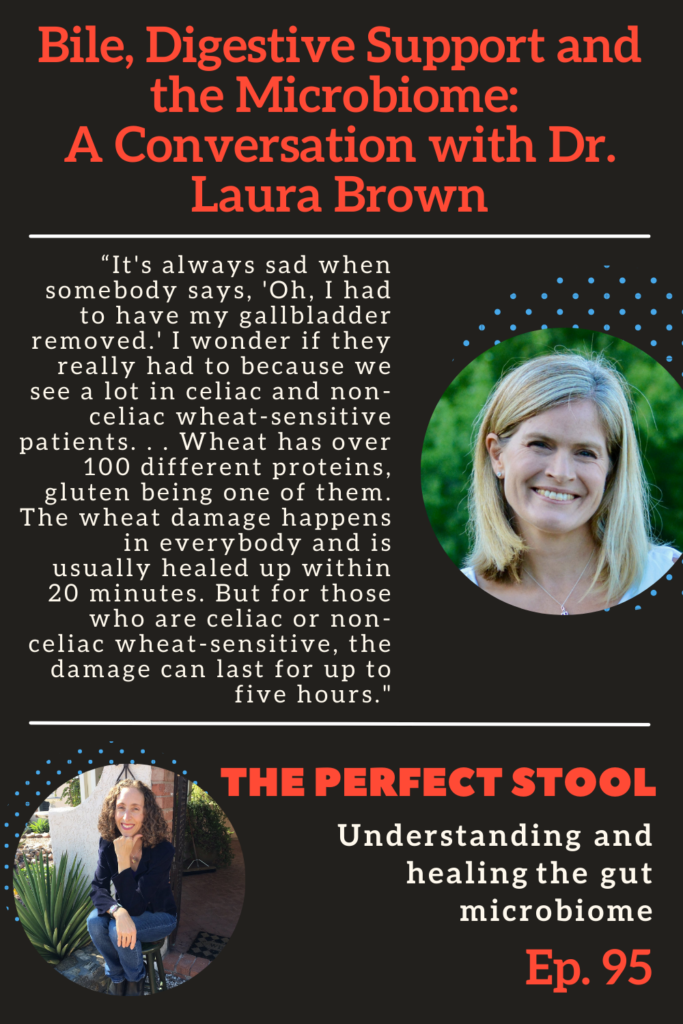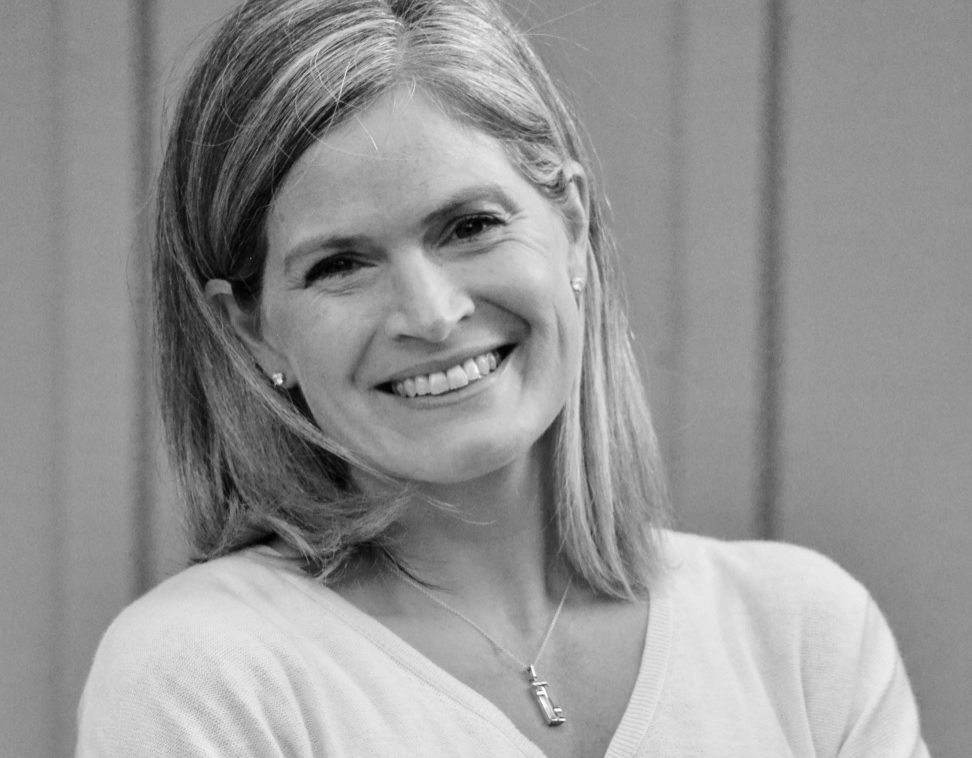Bile is an under-rated part of our digestive process. Learn why with Lindsey Parsons and me in this episode of “The Perfect Stool“.
Your liver eliminates waste products, such as toxins, dead blood cells and excess cholesterol through bile. Bile is released in digestion and used to absorb dietary fats, vitamins, and other nutrients. Bile is a substance your liver makes while filtering your blood. When bile is made, half goes direct into digestion and the other half is stored in the gallbladder where it is concentrated 5-10 times.
Without proper bile any fat ingested will be poorly digested, a condition called steatorrhea. In those with inflammatory bowel disease, this could be one reason for diarrhea after eating. Bile is like dish soap, breaking up the fat into tiny absorbable bubbles called micelles. In these fat droplets are essential fat-soluble nutrients you need to absorb like vitamins A, D, E, K and cholesterol.
Components of bile:
- Bile acids
- Phospholipids
- Biliverdin/bilirubin
- Immunoglobulin A
- Mucus
- Endogenous products: lipo- vitamins, corticosteroids, progesterone, testosterone
- Trace metals
- Xenobiotics
Gut microbes are involved in secondary bile acid formation and are also involved in regulating bile acids in the liver. Of the 5% bile acids remaining in transit in the large intestine, bile acids undergo chemical changes induced by the microbiome. When the microbiome is out of balance, there are less secondary bile acids and subsequent inflammation.
- Higher levels of gram-negative LPS producing bacteria relate to lower levels of secondary bile acids
- Healthy levels of Firmicutes commensal gram-positive bacterium favour higher levels of secondary bile acids.
- Secondary bile acids affect composition and function of the microbiome and modulate fat digestion, cholesterol metabolism, vitamin absorption, liver function, and enterohepatic circulation through their combined signaling, detergent, and antimicrobial/immune mechanisms.
- Deficiency of secondary bile acids promotes intestinal inflammation.
- High levels of secondary bile acids -especially deoxycholic acid (DCA) -is associated with gut dysbiosis and disease
- Gut microbiota are also able to conjugate amino acids to make bile acids
- Alterations in the chemistry of these secondary bile acids have been linked to several diseases, such as cirrhosis, inflammatory bowel disease, and cancer.
- There is a significant association between microbial bile salt hydrolases (BSH) gene abundance and 10 human diseases, including gastrointestinal diseases, obesity, type 2 diabetes, advanced NAFLD and other liver diseases, IBD, colorectal cancer, cardiovascular diseases, and neurological diseases.
This inflammation contributes to the link of permeable membranes and gallbladder disease. Not only does the intestine have a selectively permeable membrane governed by tight junctions, hepatocytes (liver cells) and cholangiocytes (the cells that line the bile duct) are also held together by tight junctions.
Symptoms that indicate gallbladder needs attention
When bile gets sludgy there is increased risk of gallstone formation and inflammation of the gallbladder tissue, called cholecystitis. Gallbladder sludge, stones and inflammation are big concerns. Early detection and treatment of the root cause of your gallbladder concerns could save you from gallbladder surgery, infection, perforation, or gangrene.
- Heaviness in the upper abdomen
- Nausea
- Intolerance of alcohol and fats
- Headaches, tension in the back of the shoulders near the neck (especially on the right side)
- “Toxic” conditions associated with skin and autoimmune diseases
- Chronic constipation due to sluggish digestion
- Periodic pain in the right side of the front rib cage
- Bitter taste in the mouth
- Possible chest pain
- Floating stool
This post is intended for educational purposes only. It is not meant to diagnose or treat any condition. If you have questions about your health, seek guidance from your medical health provider. To reach Dr. Brown, drlaura@southendguelph.ca
#cholecystectomy #bile #liverhealth #gallbladder #indigestion #Alzheimers #bilirubin #digestiveaids #digestiveenzymes #vitaminC #vitaminD #malicacid#bilesequesterants #bilesupport #guthealth #IBD #IBS #SIBO #diarrhea #foodsensitivities #ketogenicdiet #naturaldigestion #guthealing #guthealth#healthylifestyle #wellness #theperfectstool #functionalmedicine #healtheducation #podcast
https://link.chtbl.com/theperfectstool-guest





